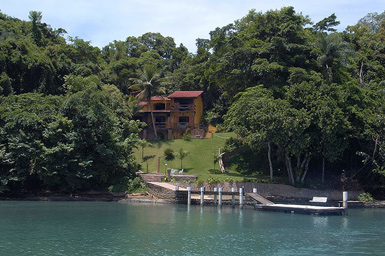|
In the last two years or so, Puerto Rico (PR) has updated its insurance legislation to encourage the formation of insurance companies operating internationally in Puerto Rico. In effect, Puerto Rico has become on "onshore -offshore" jurisdiction for insurance. Puerto Rico also has strong separate account legislation which segregates the assets in a variable life insurance or annuity contract from the claims of the insurer's creditors. Under PR law, the policy assets are exempt from the claims of the policyholders creditors.
Several life insurers issue private placement U.S. tax compliant life insurance and annuity contracts. These companies absorb very little risk. Virtually all of the mortality risk is shifted to investment grade reinsurers. Additionally, the separate account or investment assets of the policy are custodied with large independent financial institutions.
The IDF may be structured as a foreign corporation or foreign LLC such as a Cayman corporation or LLC. Under the laws of the Cayman Islands, the investment income is not subject to taxation. The investment income received as the insurance company level is not subject to taxation for U.S. or PR tax purposes as the investment income is deductible as a contribution to the insurer's reserves for corporate tax purposes. The policyholder is not taxable on this investment income as the policy is a U.S and PR. tax compliant policy.
The investment custodial account is created in the name of the foreign corporation or LLC. All of the interests in the foreign corporation are owned by the investment manager and the insurance company separate account. The only way to invest in the foreign corporation LLC is through the purchase of the variable insurance contract.
The account holder with the foreign financial institution is not a U.S. person, it is the foreign entity. Importantly, Passive Foreign Investment Company (PFIC) tax rules have an exception for active insurance companies.
Invest Offshore Case Study
The Facts:
Alan Smith, age 50, is an American attorney that has spent the last twenty years in his firm's London office as a legal expert in international trade. As a partner in the firm, Alan has enjoyed financial success. He maintains an investment portfolio managed by the London office of a Swiss investment banking firm. The investment account has a current value of $3 million.
The account is subject to the new reporting obligations outlined in FATCA - (1) FBAR and (2) Form 8938. The two countries have recently signed a joint agreement regarding the accounts of Americans.
The investment firm is pressuring Alan to transfer the account to another firm. Alan has been with his broker for the last twenty years and would like to retain the account with his broker.
The Strategy:
Alan creates a Nevis trust to serve as the applicant, owner and beneficiary a private placement variable deferred annuity contract issued by Acme Life, a specialty Puerto Rican life insurance company. The contract is U.S. tax compliant and features an insurance dedicated fund that is managed by the Swiss investment bank that currently manages Alan's personal account. The investment mandate provides the investment bank with complete legal authority and discretion to "buy and sell" based on the investment objectives.
The account is structured as a Cayman LLC. The funds are custodied with a Swiss bank. The investment bank is the managing member and the insurance company separate account is the only other authorized member in the LLC. Alan assigns his investment account with his broker to Acme as an in kind or non-cash premium. The policy PPM features two investment accounts - (1) Acme Money Market Account and (2) Swiss Cheese Investment Fund (managed by Swiss investment Bank).
The policyholder is not subject to FBAR reporting or completion of Form 8938. Additionally, the foreign financial institution is comfortable with the idea that the IDF is not an American account subject to reporting to the U.S. Government. The investment income is not taxable, as it is held within a variable annuity contract that is U.S. compliant. It is also not taxable to the policyholder under the U.S.-UK Income tax treaty.
Summary
The strategy outlined above provides a practical and effective method that will allow Americans with foreign accounts within foreign financial institutions to retain an account with a foreign financial institution through a private placement insurance contact issued by a life insurer issued in Puerto Rico. Furthermore, the account and policy is not subject to reporting under FBAR and Form 8938. Additionally, the investment income within the policy is non-taxable in the UK and U.S. since the policy is a U.S. tax complaint policy.
Authors Note: The above article was written by Gerry Nowotny, a tax and estate planning attorney with a JD and LL.M in estate planning from the University of Miami School of Law. | 







 Home Page
Home Page